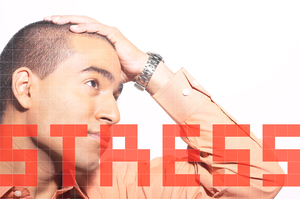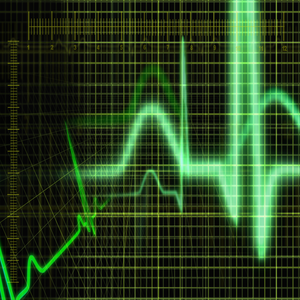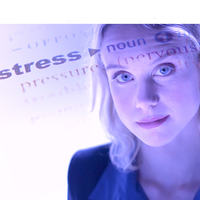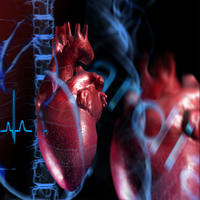Work, Stress, Vacations and Exotic Drinks with Little Umbrellas in Them

Your humble reporter has often spoken about his brush with burnout.
Even though I was a recognized expert on stress – and a former meditation teacher, no less! – I got perilously close to the edge. Fortunately someone noticed and I was packed off on vacation. It was remarkable that just a week in the Caribbean followed by an unforgettable one-week retreat in the Catskills was enough to cure me. My resting pulse rate fell from 68 to 48, where it stayed for more than a year, and I never again had any symptoms. The key point was that the short break was enough to interrupt the downward spiral and provoke the cognitive shift that prevented me from ever again making the mistakes that lead to the trouble in the first place.
I still work hard, but trust me when I say that working 16-17 hours a day, seven days a week is preposterous. Neglecting your emotional health and social life is bad enough. But the last straw was to stop engaging in spiritual practices that I had followed since childhood.
For a long time now I have been teaching that most people can make phenomenal changes in a very short period. It may take you a long time to prepare, but once you are ready change can be extremely quick. If you think about it, the actual physical business of an egg and a sperm joining to make a new life takes less than a minute. But the preparation for the event may take half a lifetime. At least I hope for your sake that it takes a lot longer than a minute…
And that’s all that I am going to say about that…
I was thinking about all this the other day when a stressed executive was telling me that he all he wanted was to spend six months sitting on a beach. In fact that would probably be a thoroughly bad idea.
It is not the time; it is the quality of the time, and the energy that you bring to it.
I cannot stress enough that for most people energy management is far more important than time management.
When it comes to beating burnout, the kind of vacation is likely more important than its length.
A summary of ten years of research by a team lead by Dov Eden, an organizational psychologist from Tel Aviv University’s Faculty of Management, was presented at last year’s meeting of “Work, Stress and Health” in Miami. The event is sponsored by the American Psychological Association and what Professor Eden had to say really supports what we have been talking about.
For the past ten years the team has been studying “respite effects,” which measure relief from chronic job stress during and after vacations away from the workplace. They have also been looking at the impact of constant contact: the revolution in telecommunications has kept some people permanently wired into the office while they are supposed to be away putting their feet up and drinking exotic concoctions with little umbrellas in them. So we are losing true “respite relief,” and that in turn is a cause of chronic job stress.
One recent study involved 800 professors from eight Universities in Israel, the United States, and New Zealand. The researchers measured stress levels before, during, and after a sabbatical leave of a semester or a whole year. They compared them with people who stayed home, and others who just took a long weekend or a one-week vacation. They found that those who took a long sabbatical break experienced about the same amount of stress relief as people who had taken either a week off or just a long weekend or long-weekend vacation. And all three groups returned to pre-sabbatical stress levels in about the same amount of time: approximately three weeks.
Some of Eden’s other studies have indicated that people who best succeed in uncoupling from work and detaching form its demands, get the most benefit from their vacations and they probably less likely to experience job burnout. It’s the ones who cannot detach from the constant flow of job-related demands that are most likely to suffer from burnout.
The key to a refreshing vacation is to create as much space as possible between you and your work life. I once knew someone who spent a week on Tioman Island in the South China Sea. It is reputed to be one of the most beautiful places on earth, which was one of the reasons why it was selected for the filming of South Pacific. For the whole week she spent all day every day working, and every day the hotel’s fax machine got jammed with the 60-70 pages that she sent out. That is not a recipe for a refreshing, life affirming vacation.
This body of research confirms what most sensible managers have worked out for themselves. When someone goes on vacation they should leave their cell phones behind and not check their email. People who feel attached to the office 24/7 are setting themselves up for long-term stress-related illnesses.
I get a lot more email and phone calls than most normal mortals, yet many years ago I made a remarkable discovery.
I had been out of contact for a week, and even after disposing of the spam and junk mail, there were still well over a thousand messages “demanding” my immediate attention. But during that week away, events had moved on, most no longer needed any input from me at all. Matters had been resolved and solutions found. We lost no business, and I have it on good authority that the earth did not fall into the sun.
I came back rested and restored, and firing on all cylinders: everyone benefited.
Quite obviously it is not a good idea to be completely un-obtainable. I have had two friends, one of whom lost her mother and another his wife, and neither heard the sad news for more than a week. So even when I am in some far flung part of the planet I make sure that there is a way for me to be contacted, But only three people know how.
And I am no longer an electron junkie.
Try it the next time that you have a chance. It really is easier than you think.
“Let all bitterness, and wrath, and anger, and clamor, and evil speaking, be put away from you, with all malice; and be ye kind to one another, tenderhearted, forgiving one another, even as God, for Christ’s sake, hath forgiven you.”
–The Bible, Ephesians 4:31-32
“Detach yourself from all that makes your mind restless. Renounce all that disturbs its peace. If you want peace, deserve it.”
–Sri Nisargadatta Maharaj (Indian Spiritual Teacher and Exponent of Jnana Yoga and Advaita Doctrine, 1897-1981)
“You must have been warned against letting the golden hours slip by, but some of them are golden only because we have let then slip by.”
–Sir James Matthew (J.M.) Barrie (Scottish Writer and Playwright, 1860-1937)
The Looming Crisis of Alzheimer’s

For those of us who lobby for resources, it is no overstatement to say that Alzheimer’s disease has reached crisis proportions in the United States.
As we are getting older, the incidence, prevalence and mortality of Alzheimer’s disease are all rising.
The 2007 Alzheimer’s Disease Facts and Figures report by the Alzheimer’s Association makes sobering reading. Here are some of the headline facts:
- Alzheimer’s disease is the most common cause of dementia
- At the present rate, one in 85 people will have the disease in 40 years
- There are now more than 5 million people suffering from Alzheimer’s disease, and the report projects an increase of 16 million cases by 2050 unless preventive measures are taken and/or science is able to come up with a prevention or cure
- One person is now diagnosed with dementia every seven seconds
- One in every four American families is affected by dementia
- The incidence of dementia is one in 1,000 before age 65 and one in 20 after age 65.
- More than $100 billion is spent per year on dementia, which is about 10 percent of all healthcare expenditures
As we have discussed before, the symptoms of dementia may be delayed for 3 to 5 years through healthy lifestyles and behavior modification, and there are many new treatment approaches in the pipeline.
The huge issue is that statistic about one in four families being affected by the disease. And it is a disease: it is not part of normal aging.
Caregivers can suffer terribly.
The Alzheimer’s Association also has some information for those who care for people with Alzheimer’s.
There is also some food information here concerning caregiver stress.
I would also like to direct you to some of the things that I have written here about the wellness of caregivers.
And for everyone, don’t wait until you are thirsty before you dig that well. Work on building you personal resilience and follow the simple lifestyle guidelines that may significantly reduce your risk of developing Alzheimer’s disease.
Integrated Medicine with Heart Surgery

The movement to treat the whole person is a lot more developed in Europe than tit is in the United States. So it is always gratifying to see research on integrated medicine on this side of the pond. Even if there are critics who call anything holistic “woo woo,” the fact is that patients like the approach, and there is a developing research base.
A new study from the Mayo Clinic indicates that massage therapy decreases pain levels for patients after heart surgery. During a five-month period in 2005, 58 patients undergoing surgery participated in a pilot study to examine the effect of massage on pain after surgery. Of the 30 who received massage, the mean pain scores were less than 1 on a scale of 1 to 10, with 10 as the most painful.
Before the massage therapy, these patients rated their pain at an average of 3 on a 10-point scale. In the control group of 28, pain levels remained the same over the same period, according to findings published in the current issue of Complementary Therapies in Clinical Practice.
As a result of the pilot study, Mayo now has a full-time massage therapist available for patients after heart surgery, and a larger, randomized study is under way.
The reason for the study was that patients often report that tension, stress, pain and anxiety get in the way of their recovery after cardiac surgery. Therefore apart from massage, the researchers are also exploring the use of stress management, music therapy and guided imagery as adjuncts to the best of modern medicine.
This makes good sense, and I shall keep you posted as more information is published.
Meditation, Stress and Self-Regulation

There is progressively more evidence that meditation can have measurable effects on behavior and the brain. The trouble is that some of the results have conflicted, mainly because of the different types of meditation and different measurement protocols. So I was very interested to see some new research in this week’s issue of the Proceedings of the National Academy of Sciences, by a team of researchers from China collaborating with renowned experts at the University of Oregon, who have developed an approach for neuroscientists to study how very brief meditation training might improve a person’s attention and response to stress.
The study itself was done with undergraduate students in China. The experimental group received five days of meditation training using a technique called integrative body-mind training (IBMT), which was developed in China n the early 1990s.
IBMT is a rapid mental training method that aims at inducing a state of alert restfulness using breathing and guided imagery.
The control group received five days of relaxation training. Before and after training both groups took tests involving attention and reaction to mental stress.
The experimental group showed greater improvement a test of attention that was designed to measure peoples’ ability to resolve conflict among stimuli. Subjects were stressed by doing mental arithmetic.
At the beginning of the experiment both groups showed an elevated release of cortisol following the mathematical task, but after training the experimental group showed less cortisol release. This probably indicates an improvement in stress regulation. The experimental group also showed lower levels of anxiety, depression, anger and fatigue than the control group.
The next stage in the research will involve direct measurements of brain function.
Although IBMT is described as a form of meditation, it may be inducing something slightly different from, say, Zen meditation. The important point is that it is possible to produce measurable physiological changes in just five days, and this will make it much easier to examine the dynamic effects of hypnosis, relaxation and this technique on brain function.
I would also be grateful for any readers who have more information abut the precise details of IBMT, and whether training in the precise techniques is available outside China.
I shall keep you posted as new data emerge.
“Peace can be reached through meditation on the knowledge which dreams can give. Peace can also be reached through concentration upon that which is dearest to the heart.”
–Patanjali (Indian Philosopher said to be the Compiler of the Yoga Sutras, Dates Unknown)
“Through meditation and by giving full attention to one thing at a time, we can learn to direct attention where we choose.”
–Eknath Easwaran (Indian-American Spiritual Teacher, Professor and Author, 1910-1999)
“Meditation is not to escape from society, but to come
back to ourselves and see what is going on. Once there is
seeing, there must be acting. With mindfulness, we know
what to do and what not to do to help.”
–Thich Nhat Hahn (Vietnamese Buddhist Monk, 1926-)
“A meditator keeps his mind open every second. He is constantly investigating life, investigating his own experience, viewing existence in a detached and inquisitive way. Thus, he is constantly open to truth in any form, from any source, an at any time.”
–Henepola Gunaratana (a.k.a. Bhante G., Sri Lankan Buddhist Monk, 1927-)
T’ai Chi Chih and the Sympathetic Nervous System

One of the problems about getting older is that the activity of the sympathetic nervous system may increase, bringing with it an increased risk of metabolic problems such as insulin resistance, hypertension and cardiovascular disease.
The sympathetic nervous system is a branch of the autonomic nervous system. It is always active at a basal level, which is called sympathetic tone. It becomes more active during times of stress. Its actions during the stress response comprise the classical fight-or-flight response.
There is a very interesting study from the Norman Cousins Center for Psychoneuroimmunology at the UCLA Semel Institute for Neuroscience & Human Behavior in Los Angeles.
There were 32 people in the study aged 60 or over. There were 19 people who were T’ai Chi Chih (TCC) practitioners and 13 who were not. The practitioners had completed a 25-week training in TCC the 13 others just had health education classes. T’ai Chi Chih is a simplified type of T’ai Chi that emphasizes the development of qi, a.k.a. chi.
TCC practitioners performed the breathing and movements for 20 minutes, while HE participants passively rested for the same time. Investigators measured various cardiovascular parameters before and after the task. A subsample of participants returned for a second evaluation and performed videotape-guided stretching for 20 minutes to evaluate the cardiovascular effects of slow-moving physical activity. TCC performance was found to significantly decrease sympathetic nervous system activity as measured by cardiac pre-ejection, blood pressure and heart rate. In contrast, there was no change in sympathetic activity following passive rest or slow-moving physical activity.
This shows us that there is something different about T’ai Chi. Practicing it leads to a decrease in activity of the sympathetic nervous system to levels that are not achieved by performing comparable physical activity alone.
Rescue Remedy and Acute Anxiety

I have been using the Bach Flower Essences since the 1970s and they can be very helpful. Since living in the United States I have added the American Flower Essences to my repertoire. We have even helped cats, dogs and horses with them. The whole idea that soaking a flower in water and exposing the infusion to sunlight could have any therapeutic benefit seems absurd. Except that the remedies so often work. The trouble is that there is so little decent research on them.
A new study conducted by researchers at the University of Miami School of Nursing in conjunction with The Sirkin Creative Living Center has suggested that Rescue Remedy, a mixture of five of the Bach Essences, may be effective for the treatment of anxiety.
Rescue Remedy, manufactured by Nelsons, contains five flower essences, each of which is said to have a specific psycho-spiritual action:
- Rock Rose to alleviate terror and panic
- Impatiens to mollify irritation and impatience
- Clematis to help with inattentiveness
- Star of Bethlehem to ease shock
- Cherry Plum is said to calm irrational thoughts
The study examined the product for the reduction of acute situational stress. A double-blind clinical trial comparing a standard dosage of Rescue Remedy against a placebo of identical appearance was conducted in a sample of 111 individuals aged 18 to 49. The Spielberger State-Trait Anxiety Inventory (STAI) was administered before and after the use of Rescue Remedy or placebo. The results suggest that Rescue Remedy may be effective in reducing fairly high levels of situational anxiety. The results were just published in the latest edition of Complementary Health Practice Review. The abstract should be available online in the near future.
It will be interesting to see if this result can be replicated with this kind of acute anxiety, as well as other types of stress or anxiety. The STAI is a good choice for a first study: it is simple and attempts to capture the key features of the acute anxiety as well as the long-term propensity to it. It can be hard for people to give reproducible answers when they are acutely anxious, and it is important to know about the inter-rater reliability of the people dong the evaluations.
Recently the Rescue remedy has been produced as a spray as well as the original drops, and we have been making extensive use of it in combination with other approaches to treatment.
As I explain in Healing, Meaning and Purpose, there are good reasons for thinking that different types of treatment work at different levels of an individual. The flower essences seem to work at the level of the Informational Matrix of the body: it is an “information medicine,” that can act very quickly. We have seen scared horses – and people – calm down within seconds after being given the right remedy.
When it works, it can be remarkable.
Evaluating Sense of Coherence

Yesterday we began to look at Aaron Antonovsky’s concept of Sense of Coherence.
Here is one of the most widely used sets of questions to determine an individual’s Sense of Coherence, derived from Antonovsky’s The Sense of Coherence Quest.
The questions concern a number of aspects of our lives.
Each question has seven possible answers. The person doing the evaluation marks one number from 1 to 7 for whichever one most closely corresponds to their beliefs or feelings.
1. When you talk to people, do you have the feeling that they don’t understand you?
Never 1 2 3 4 5 6 7 Always have this feeling
2 In the past, when you had to do something that depended upon cooperation with others, did you have the feeling that it:
Surely wouldn’t get done 1 2 3 4 5 6 7 Surely would get done
3. Think of the people with whom you come into contact daily, aside from the ones to whom you feel closest. How well do you know most of them?
You feel that they’re strangers 1 2 3 4 5 6 7 You know them very well
4. Do have the feeling that you don’t really care about what goes on around you?
Very seldom or never 1 2 3 4 5 6 7 Very often
5. Have you in the past ever been surprised by the behavior of people whom you thought you knew well?
Never happened 1 2 3 4 5 6 7 Always happened
6. Have you ever had people that you counted on, ended up disappointing you?
Never happened 1 2 3 4 5 6 7 Always happened
7. Life is:
Full of interest 1 2 3 4 5 6 7 Completely routine
8. Until now your life has had:
No clear goals or purpose at all 1 2 3 4 5 6 7 Very clear goals and purpose
9. Do you have the feeling that you’re being treated unfairly?
Very often 1 2 3 4 5 6 7 Very seldom or never
10. In the past ten years your life has been:
Full of changes without your knowing what will happen next 1 2 3 4 5 6 7 Completely consistent and clear
11. Most of the things you do in the future will probably be:
Completely fascinating 1 2 3 4 5 6 7 Deadly boring
12. Do you have the feeling that you are in an unfamiliar situation and don’t know what to do?
Very often 1 2 3 4 5 6 7 Very seldom or never
13. What best describes how you see life:
One can always find a solution to painful things in life 1 2 3 4 5 6 7 There is no solution to painful things in life
14. When you think about your life, you very often:
Feel how good it is to be alive 1 2 3 4 5 6 7 Ask yourself why you exist at all
15. When you face a difficult problem, the choice of a solution is:
Always confusing and hard to find 1 2 3 4 5 6 7 Always completely clear
16. Doing the things you do every day is:
A source of deep pleasure and satisfaction 1 2 3 4 5 6 7 A source of pain and boredom
17. Your life in the future will probably be:
Full of changes without your knowing what will happen next 1 2 3 4 5 6 7 Completely consistent and clear
18. When something unpleasant happened in the past your tendency was:
“To beat yourself up” about it 1 2 3 4 5 6 7 to say, “Ok that’s that, I have to live with it ” and go on
19. Do you have very mixed-up feelings and ideas?
Very often 1 2 3 4 5 6 7 Very seldom or never
20. When you do something that gives you a good feeling:
It’s certain that you’ll go on feeling good 1 2 3 4 5 6 7 It’s certain that something will happen to spoil the feeling
21. Does you have feelings inside you would rather not feel?
Very often 1 2 3 4 5 6 7 Very seldom or never
22. You anticipate that your personal life in the future will be:
Totally without meaning or purpose 1 2 3 4 5 6 7 Full of meaning and purpose
23. Do you think that there will always be people whom you’ll be able to count on in the future?
You’re certain there will be 1 2 3 4 5 6 7 You doubt there will be
24. Does it happen that you have the feeling that you don’t know exactly what’s about to happen?
Very often 1 2 3 4 5 6 7 Very seldom or never
25. Many people – even those with a strong character – sometimes feel like sad sacks (losers) in certain situations. How often have you felt this way in the past?
Never 1 2 3 4 5 6 7 Very often
26. When something happened, have you generally found that:
You overestimated or underestimated its importance 1 2 3 4 5 6 7 You saw things in the right proportion
27. When you think of the difficulties you are likely to face in important aspects of your life, do you have the feeling that:
You will always succeed in overcoming the difficulties 1 2 3 4 5 6 7 You won’t succeed in overcoming the difficulties
28. How often do you have the feeling that there’s little meaning in the things you do in your daily life?
Very often 1 2 3 4 5 6 7 Very seldom or never
29. How often do you have feelings that you’re not sure you can keep under control?
Very often 1 2 3 4 5 6 7 Very seldom or never
There are no right or wrong answers, but the overall pattern of your scores will give you some useful insights. There is a large research literature in which scores on this scale have been related to everything from career choices to the risk of getting PTSD.
A Sense of Coherence

One of the central concepts of Integrated Health and Integrated Medicine is the idea of coherence. This is not a new idea, but was developed in new ways and formalized by the American/Israeli sociologist Aaron Antonovsky. It is such an important concept that I have mentioned something about it before
Antonovsky developed his theory of health and illness, which he termed Salutogenesis. This model was described in his 1979 book “Health, Stress and Coping”, followed by “Unraveling the Mystery of Health”
in 1987. I remember its publication, and the strong feeling amongst many of us interested in Integrated Health that it was a most important
contribution to understanding the relationship between health and
illness. A key concept in Antonovsky’s salutogenic theory concerns the way in which
specific personal dispositions serve to make us more resilient
to the stressors that we encounter in daily life.
Antonovsky identified
these characteristics, which he said helped a person better cope and remain healthy by providing “a sense of coherence” (SOC) about
life and the challenges we all face. Measures of Sense of Coherence have
been developed and tested in more than 30 countries.
The SOC is defined as: “The extent to which one has a pervasive, enduring though dynamic, feeling of confidence that one’s environment is predictable and that things will work out as well as can reasonably be expected.”
So it tries to capture our sense of optimism and control.
SOC has three components:
- Comprehensibility
- Manageability
- Meaningfulness
Comprehensibility is the extent to which events are perceived as making logical sense, that they are ordered, consistent, and structured. Manageability is the extent to which a person feels they can cope. Meaningfulness is how much one feels that life makes sense, and challenges are worthy of commitment.
Professor Antonovsky believed that a person with a strong SOC is more likely to feel less stress and tension, and to have confidence that he or she can meet the demand placed upon them. The SOC was developed to apply across cultures, and versions of the questionnaire have been used in over 30 countries.
The SOC is not the only factor in a predicting outcomes in a person’s life: it interacts with a person’s natural coping style, upbringing, financial assets, mood and social support. The strength and availability of each is a major determinant in the development of a strong or weak SOC.
Research in the growing field of psychoneuroimmunology
has supported many of the basic assertions of the relationship between
emotions and health contained in Antonovsky’s theory of Salutogenesis.
I saw some research (NR691) at the 2007 Annual Meeting of the American Psychiatric Association in San Diego, California last month that was based on a sample of 976 working people in Denmark, found that people with a high sense of coherence perceive less stress and experience less psychological disturbance in the work place.
This all makes very good sense, and it also gives us yet another line of approach for helping people deal with the stresses of life and gain personal mastery.
I shall talk about using this information in the future.
Personal Mastery and the Wellness of Caregivers

Looking after aging relatives can be incredibly difficult, particularly if they have a chronic illness such as Alzheimer’s disease.
There is also evidence that the caregivers of people with Alzheimer’s disease have increased rates of cardiovascular disease and they die prematurely. It has been assumed that the cardiovascular problems are a result of stress causing overdrive of the sympathetic nervous system.
There was some interesting research (NR241) presented last month at the 2007 Annual Meeting of the American Psychiatric Association in San Diego. The investigators did not have to come far: they are from the University of California in San Diego.
The investigators looked at 70 spousal caregivers of people with Alzheimer’s disease and used an experimental task to measure the activity of their sympathetic nervous systems. They also measured the caregiver’s levels of “Mastery:” the belief that one is capable of handing one’s problems. Mastery is one of the components of resilience, a key characteristic of a person who can handle stress well.
What they found make very good sense: the caregivers with the highest levels of personal mastery had the lowest levels of sympathetic activity, suggesting that a sense of mastery may protect against the physiological effects of acute stress.
This provides us with yet more evidence that psychosocial interventions that increase mastery may reduce the risk of cardiovascular disease amongst the caregivers of people with dementia.
Dying of a Broken Heart

Some colleagues in London have discovered how intense stress may cause severe irregularities (arrhythmias) of the heart that could be fatal.
It has been known for some time that emotional trauma and psychological stress can precipitate cardiac arrhythmia and sudden death through over-activity of the sympathetic nervous system, the system usually associated with “Fight or flight.” It has also been known that people with preexisting heart disease are particularly at risk. This is one stereotype that is true: if someone with heart disease gets a bad shock, they may indeed die. It has been known for centuries that suffering a sudden unexpected bereavement can be a fatal stressor.
It is extremely important to understand how stress can affect the heart, and researchers at the Wellcome Trust Centre for Neuroimaging at University College London and the Brighton and Sussex Medical School have made an important breakthrough that has just been published in the Proceedings of the National Academy of Sciences. Measuring the electrical activity of the brain and heart at the same time, they discovered at the regions of the brain responsible for learning, memory and emotion can destabilise the cardiac muscle of someone who already has heart disease. These areas of the brain can participate in a “vicious cycle” with the heart.
The patients performed the task of counting backwards in sevens, which is for most people mildly stressful.
The researchers discovered that activity in “higher level” regions of the brain such as the cerebral cortex, not only reflected the responses of the heart to stress, but also became involved in a “feedback loop”, often worsening the situation by making the heart muscle less stable.
The regions of the brain responsible for regulating heart function can be unbalanced by stress, and it can be fatal.
It is further evidence that there is a constant “conversation” between the heart and the brain.
It is also the best evidence to date that comprehensive care of people with heart disease must include stress management.
And why wait until it’s too late?
Now is the time to start building your resilience to stress!






